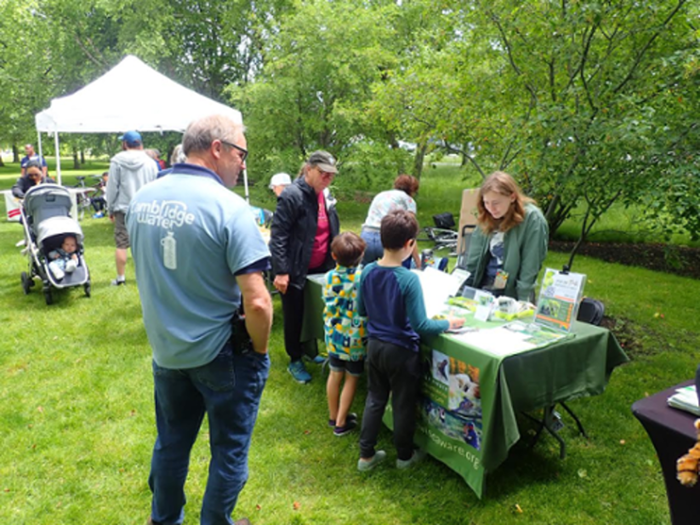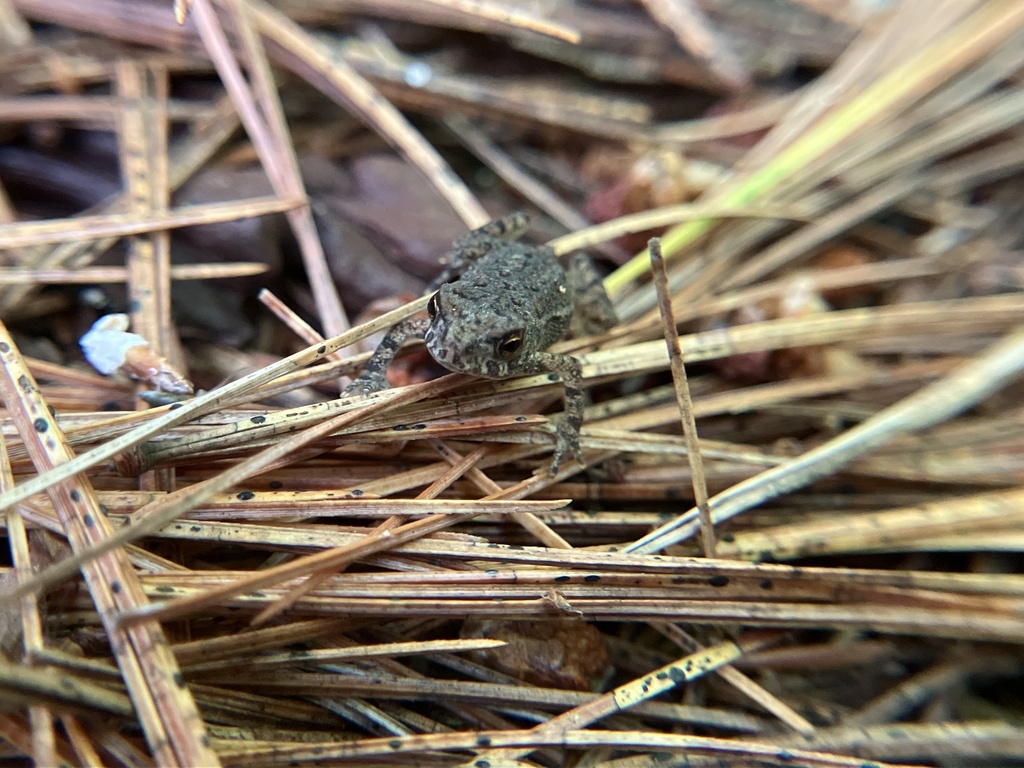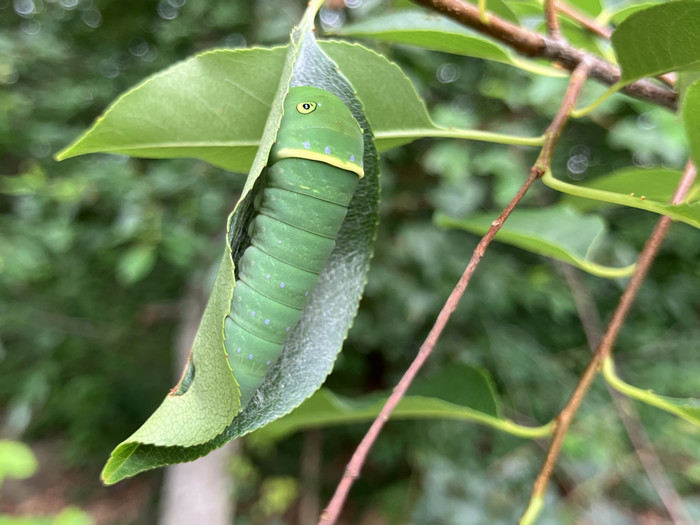ENVS Mentorship Program Spotlight: Madeline Logan
Madeline Logan is completing the Environmental Studies summer 2023 mentorship program with Earthwise Aware (EwA). EwA's mission is to facilitate learning about natural systems, practice ecological ethics and sound science, and inspire environmental leadership.Get to know Madeline and hear about her experiences over the summer below.
About Madeline
Madeline is a rising senior at Brandeis majoring in Environmental Studies and Studio Art. She’s originally from Alexandria, Virginia and moved to Massachusetts in 3rd grade. She is involved on campus in Boris’ Kitchen Sketch Comedy, WBRS and Gravity Magazine. Madeline enjoys reading science fiction, identifying bugs, and drawing. Her favorite vine is the Virginia Creeper.
Part I: Getting Started with EwA
While interning at Earthwise Aware for the past month, Madeline has spent time in the field at several sites collecting primarily phenology and arthropod data through programs like iNaturalist, Anecdata, Nature's Notebook and Caterpillars Count. She has been working on a project using Story Maps to aggregate EwA's data on specific trees. This past week, EwA had a table at Fresh Pond Day in Cambridge, Massachusetts, to encourage the use of EwA's programs with these apps to collect more data.

Part II: Field Observations, Data Collection, and Creating ArcGIS Story Maps
Halfway through her summer mentorship, Madeline shares some of her work at EwA below:
"Throughout the greater Boston area there are many environmental sites with data referenced by organizations across the country and even across the globe. This data is collected by organizations like Earthwise Aware (EwA) through programs such as Caterpillars Count, the National Phenology Network and Anecdata. Though most of the data is collected for other organizations, the data is typically open source, meaning that anyone can utilize the data for their research. Public data participation is essential to understanding the reality of how climate change is affecting biological processes and other anthropogenic effects on the environment.
While working in the field has taught me just how large environmental factors like climate and weather can have significant effects on ecosystems. Despite the recent heavy rain, the effects of the drought are still very present in Massachusetts. Over the past few weeks in the field, I have been observing a wide variety of mushrooms that seemingly popped up in response to the recent storms. Some of these mushrooms have appeared much later in the season than they typically do and have been drying out quickly, sometimes before they are able to release their spores. Other effects of the drought include creeks completely drying up after rain within a single day and trees having a hard time recovering from disease and insect infestations. Both trees and mushrooms have an important role as both habitats and food sources for the wider ecosystem, even being home to their own small ecosystems.
Using the data collected by EwA in the field over the past few years I have been utilizing ArcGIS Story Maps to create hubs of information for various trees and shrubs that are regularly observed by the organization. When going into the field data is collected on the timing and abundance of the trees’ leaves, flowers and fruits or their phenology. Phenology is the study of the timing of recurring biological events, such as the timing of when leaves drop in the fall. This data has proved extremely useful in creating calendars to monitor the changes in the timing of phenophases because of climate change. In my recent research into the mapleleaf viburnum I have found that the timing of the plant's flowering phase has moved to about a month earlier in the year over the past 100 years. This is likely due to the plant being affected by anthropogenic climate change and environmental damage.
Tracking the phenology of plants, animals and fungi in the urban and suburban ecosystems is important in understanding the continued human impact on the environment. Getting to experience and understand these changes in seasonal changes has opened my eyes to everyday effects of climate change and appreciating small changes within ecosystems throughout the summer, like the appearance of different birds, changes in a caterpillar as it matures to the pupal stage and their emergence as moths and butterflies. Through the final weeks of the summer I will be concluding my phenology projects on the mapleleaf viburnum, sweet birch and the hybrid Saul’s oak."

Part III: Final Thoughts on Mentorship Experience
Below, Madeline shares her final reflections of her summer mentorship experience:
"As I close out the final weeks of my internship with Earthwise Aware (EwA) I have been finishing up my projects and looking at all I have done and learned over the summer. Most of my focus over the last few weeks has been editing a set of StoryMaps detailing the phenological cycle of specific plants that are monitored by EwA throughout the year. StoryMaps is a program supported by ESRI that allows for integrated interactive maps made in ArcGIS online and a variety of ways to display images and text. My experience with StoryMaps was limited to relatively small projects in classes so the process of creating the sites required a lot of research, talking to other people familiar with the program, and of course troubleshooting. This project has expanded my understanding of how to communicate scientific information to novice’s looking to enter the world of data collection by communicating directly with that audience and more experienced data collectors throughout my writing process.
Speaking of communication, the EwA community has been essential to my experience as an intern. I met many people working in the field at Horn Pond, Long Pond and Bellevue, going on weekend hikes, and online meetings. I have even encountered some other Brandeis students in my work. Everyone I have met has taught me something that has helped me throughout my internship, from helping me edit the grammar in my writing, showing me how to take clear photos of very small insects, learning how to identify fungi, find caterpillars and where to find the best hiking spots in Scotland.
Participating in other’s projects has also been integral to my internship. I have been meeting regularly with the other intern from Tufts, who was working on coding data snippets from the EwA arthropod association app “Buggy” on Anecdata. Our collaborative meetings helped me make my data presentation in my projects better and more clear in my Story Maps. I was also able to provide advice on what data might be most interesting to naturalists in the field. I collaborated with other EwA members on a guide to making observations on “Pheno Lite”, an app designed to allow people to make phenological observations in their own backyard and local trails that are not designated EwA sites. This brings more opportunities to learn the process of phenology tracking especially for people who may not be able to go into the field every week, especially during the year. Making a community accessible to anyone with an interest is important to building a strong community with a large impact that can withstand the test of time.
The community of EwA plays as much of a role in its function as an organization as the data we collect, organize and present. Science is an inherently collaborative process that requires strong collaborative communities built around every step of the process. This lesson along with the many other practical skills I have gained while working with EwA will remain as building blocks throughout my career and continued work with Earthwise Aware and other organizations like it."
